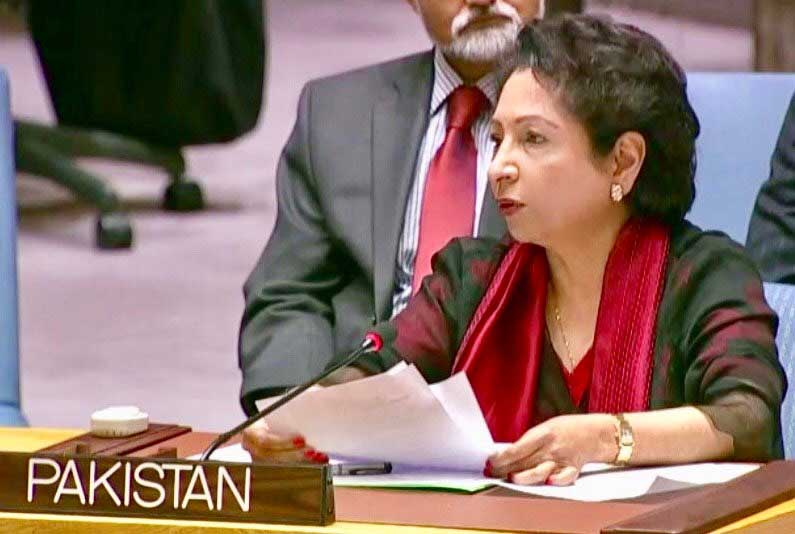
"As a party to the Kashmir dispute, this is the UN's long-standing obligation," Ambassador Maleeha Lodhi, permanent representative of Pakistan to the UN, told the UN General Assembly on Monday.
Speaking in the debate on the Report of the Secretary General on the work of the Organization, she said the Jammu and Kashmir dispute remains one of the oldest items on the Security Council agenda, noting that relevant, yet unimplemented resolutions grant Kashmiris the right to self-determination.
Pakistan seeks a negotiated solution to the dispute, Ambassador Lodhi said, pointing out that India does not. Welcoming the establishment of the Secretary General's High-Level Advisory Board on Mediation, the Pakistani envoy reminded the 193-member Assembly that the Jammu and Kashmir dispute was one of the earliest applications of Chapter VI of the United Nations, which deals with pacific settlements of disputes.
Ambassador Lodhi also referred to the June 14 report of the UN High Commissioner for Human Rights, which she said documented in detail the systematic violations of fundamental rights of the Kashmiri people. Meanwhile, Ambassador Lodhi said, the Indian occupation continues to commit, with impunity, gross violations of the fundamental human rights of the Kashmiri people.
In her well-reasoned speech, Ambassador Lodhi also highlighted Pakistan's achievements in the fight against terrorism, and said that the country's military campaign had crushed and eliminated terrorist groups from its territory. In doing so, Pakistan had paid a heavy price, she said, as tens of thousands of civilians and soldiers had embraced martyrdom, and many more were injured.
She reiterated Pakistan's commitment to fight terrorism and added that this commitment remained firm and abiding. Ambassador Lodhi also stressed the importance of addressing the underlying or root causes of terrorism. She cited Secretary-General Antonio Gutteres as saying, "No one is born a terrorist, and nothing justifies terrorism, but factors such as prolonged unresolved conflicts, lack of the rule of law and socioeconomic marginalization can all play a role in transforming grievances into destructive action".
The Pakistani envoy said that a vibrant United Nations is the best bulwark against the rising tide of populism, protectionism and unilateralism. The Organisation, she said, must work in consonance with its environment, welcoming initiatives to revitalize its capabilities.
Efforts must transform the United Nations into an effective, transparent, accountable and efficient body, Ambassador Lodhi said. Peace, inclusive development and human rights are intrinsically linked, and instability continues to afflict many parts of the globe, she said. States must ensure that the prevention-centric agenda of the Secretary 'General forms the cornerstone of global peace and that the United Nations development system is fully in line with national priorities, the Pakistani enjoy added.
After Ambassador Lodhi forcefully advocated the Kashmiri people's UN-pledged right of self-determination, an Indian representative raised objections, while exercising her right of reply. Harping on the same old tune, Counsellor Eenam Ghambir, claimed that Kashmir was an integral part of India. She added that "terror and talks" do not work together. Responding to the the Indian claims, Pakistan's delegate, Jawad Ali Chatta's said, "Jammu and Kashmir is not a part of India. It never was; it never will be." Chatta, a second secretary in the Pakistan Mission to the UN said it was regrettable that India was fabricating claims and stressed that no amount of deceit could justify its illegal occupation of Jammu and Kashmir.

















COMMENTS
Comments are moderated and generally will be posted if they are on-topic and not abusive.
For more information, please see our Comments FAQ